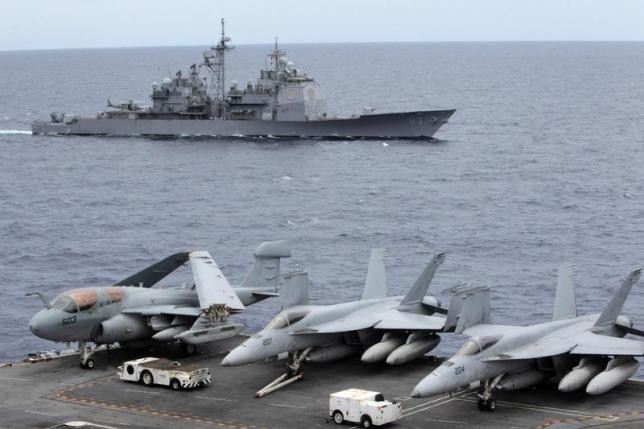The United States and China have signed annexes to two agreements covering military operations and naval and air force encounters, the Chinese government announced on Thursday.
The annexes to the agreement, which comes in line with President Xi Jinping's state visit to the U.S., were signed by defense officials from both countries on Sept. 18, Wu Quian, the newly appointed spokesman for the Ministry of National Defense, said in a scheduled news conference in Beijing.
The two annexes, which include "notification of military crisis" and "encounters in the air," had been signed as part of two mutual trust-building mechanisms between the two countries, he added.
Observers see the agreement as a major policy progress and concensus to avoid miscalculation in the Western Pacific region where China and U.S. armed forces are increasingly overlapping, the China Daily newspaper reported on Friday.
The development marks new progress in building the mechanisms for a reporting system on major military operations and a code of safe conduct on naval and air force encounters, Wu said.
According to Wu, the first annex is aimed at regulation of mutual notification of a military crisis via a telephone hotline between the respective defense agencies of each country, while the second annex clarifies rules regarding safe flying, designation of danger zones, and coordination in responding to emergencies.
Zhang Junshe, a senior researcher at the PLA Naval Military Studies Research Institute, said that the "encounters in the air" annex will prove to be especially useful, as it will serve as a set of rules ensuring aerial encounters by both countries' militaries over the ocean are guided and regulated.
"Strategic mutual trust between the two militaries will be strengthened, and there will be less chance of incidents or conflicts taking place," Zhang said. "Miscalculations or misunderstandings can be avoided as much as possible."
China and the U.S. signed a memorandum of understanding in November agreeing on the two annexes, which were proposed by Chinese President Xi Jinping during a meeting with his counterpart U.S. President Barack Obama in 2013.
In the past two years, the two countries have deepened their understanding of the real strategic intentions of each other, said Wang Fan, vice president of China Foreign Affairs University.



























